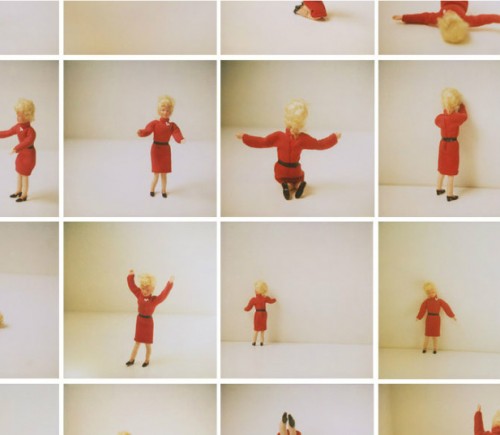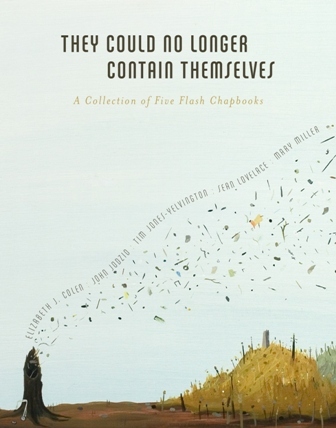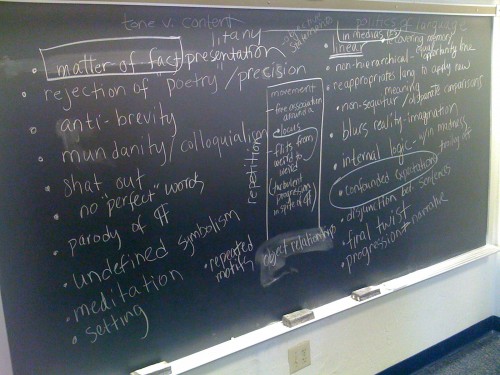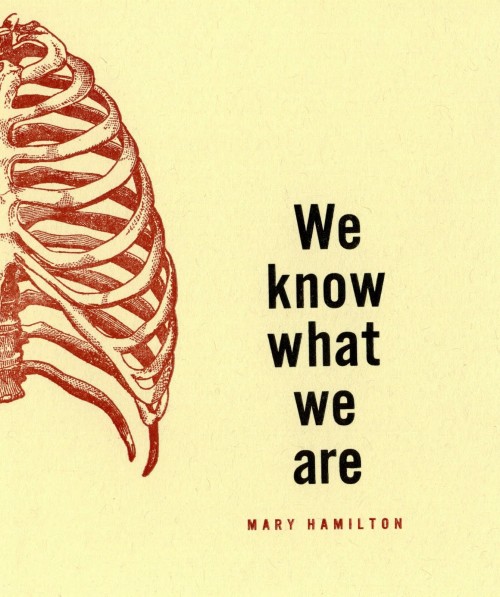The Kind of Girl by Kim Henderson
 The Kind of Girl
The Kind of Girl
by Kim Henderson
Rose Metal Press, August 2013
56 pages / $12 Buy from Rose Metal Press
Things I like about The Kind of Girl #1:
The cover: stylized dandelion in purple and black with a few slight tendrils blowing away. Which, cute as it is, is actually drawn from the book too, a metaphor for the narrator’s movement from “the summer of ugliness” (in the first sentence of the book, lauded in the introduction by Deb Olin Unferth) to the luck and leisure and happiness that came beyond:
I grew up and made my own way in the world—a dandelion among rosy girls who’d come of age in regular houses. Yellow was in that year, and I snagged the best boy.
The dandelion, pressed from a photopolymer plate onto Neenah Classic Linen 80# cover stock in Silverstone at the Museum of Printing in North Andover, Massachusetts. (So the copyright page tells me.) Then a slice of “Jellybean Green” endpaper. Then the book.
Things I like about The Kind of Girl #2:
The lovely thing about Kim Henderson’s chapbook is that it is eminently readable. You get her. It has content value a little like David Foster Wallace’s “Forever Overhead,” parts of Patrick Somerville’s Trouble, any number of coming-of-age type stories that get at the adolescent experience. But with two bonuses: it is more restrained, in both length and tone, and it comes from a female perspective.
My “other book” right now is Lily Hoang’s Changing, which has similar coming-of-age subject matter, but which also (Lily knows, and so do we all) takes a whole lot of effort to read. The Kind of Girl is a pleasant swing to the other side of the spectrum: still small press, still beautiful production value, but amenable, the kind of book that seems like it was made to hold the reader gently. One of the stories (“Muscle Memory”) first came out in Tin House, for goodness’ sake. Rose Metal Press put out a collection here with a similar appeal: spectacularly written, thematically complex, and/but formally comprehensible.
Things I like about The Kind of Girl #3:
Which, though, is not to say that The Kind of Girl is “conventional” or “traditional” in a negative sense. Part of what makes it friendly to the reader is that its stories are so short (by definition: the Rose Metal’s Short Short Chapbook Contest, which The Kind of Girl won, called for stories under 1,000 words). It’s not as if the short-short form is revolutionary by now, but it remains a way of representing the world that has been limited to a comparably small readership; if “no one reads short stories,” much of the crowd who does read short stories still looks at short-shorts askance.
That Kim Henderson chose to make these stories so brief is valuable and renovating, considering their classic subject matter and the relatively plain language in which they are composed. They give new light to the classic crises of body image, disillusionment with idolized teachers, and—this one feels more fresh to me—the slow transference of annoyed love from father to spouse. When even the most archetypal of these are compressed in Henderson’s shorts, they begin to feel more like suggestions, like the jagged fragments that compose our memory and do not “satisfy” the way a longer short story might implicitly claim to.
Part of Kim Henderson’s art is accentuating this feeling, providing a complete story while leaving the reader tense and expectant. Many of the stories’ last lines make me feel hamstrung: they end like We Are the Champions, between breaths, on a note that anticipates ending but does not provide it.
The last line in “The Carousel,” where the cycle of love and annoyance between lovers is established:
He curls against you, and you pet his hair and grind your teeth.
After her story of being called a “bad girl” all the time she grew up (“Bad Girl”):
But I wish I could go back and give little Marie some new adjectives.
Following news accounts of a naked woman getting thrown off a bridge (“The Bridge”):
My father switched the TV off and left for a four-wheeler ride.
I went to my room and colored.
This all leaves you feeling unsatisfied, but unsatisfied in a good way, as if the imperfections and loose ends do not in fact need to be reconciled. As if they can be told, and let be. And though it does not feel quite right, that wrongness is the refuse of life.
READ MORE >
October 7th, 2013 / 11:00 am
They Could No Longer Contain Themselves
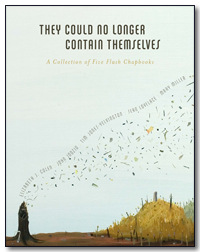 They Could No Longer Contain Themselves:
They Could No Longer Contain Themselves:
A Collection of Five Flash Chapbooks
by Elizabeth J. Colen, John Jodzio,
Tim Jones-Yelvington, Sean Lovelace, and Mary Miller
Rose Metal Press, 2011
248 pages / $15.95 Buy from Rose Metal Press
Rating: 7.0
The problem with collections of flash fiction is their unevenness, or that the reader recognizes the unevenness more than in, say, a novel. Maybe this also applies to story collections, especially non-linked stories, though there are a few that come away feeling complete–to me, usually collections with fewer stories. I can’t think of a single flash collection that does not seem hill-and-valley. They Could No Longer Contain Themselves is no exception. I find it interesting to note, however, that the chapbooks that were linked helped me see past the valleys, as I was always aware of the range. Okay, enough of this terrible analogy. On to the individual chapbooks. READ MORE >
August 2nd, 2011 / 12:02 pm
Things I’ve Read Lately
I’ve read some interesting books and magazines over the past couple weeks so I’m going to talk about them in one big post. Also, I’m giving several books away.
They Could No Longer Contain Themselves
I don’t care for the term flash fiction. I understand the etymology but I often think, “Why not call it a story?” There are so many terms now for different kinds of fiction. There is an obsession with naming, creating taxonomies so we can better understand the nature of a thing. Flash fiction. Very short stories. Sudden fiction. Microfiction. Nanofiction. All these terms strive to categorize the nature of stories that fous on brevity and compression. Ask five different writers how to define flash fiction and you will likely hear five different definitions. I read an article in the most recent issue of The New Yorker about tiny houses, and the writer talks about the article’s main subject, this guy named Shafer who designs tiny houses and the writer says, “What makes Shafer’s houses different from others is the classical elements of form and proportion and the graceful compression of his design.” I kept thinking about that line as I thought about the stories in They Could No Longer Contain Themselves. They each contain the classical elements of good fiction and the compression in each story is also graceful like a tiny house that holds everything you need to feel at home.
In They Could No Longer Contain Themselves, the latest book from the reliably excellent Rose Metal Press, five writers offer five unique interpretations of flash fiction in chapbooks by Mary Miller, Elizabeth J. Colen, John Jodzio, Tim Jones-Yelvington, and Sean Lovelace (I reviewed his chapbook in 2009, here).
July 25th, 2011 / 5:36 pm


